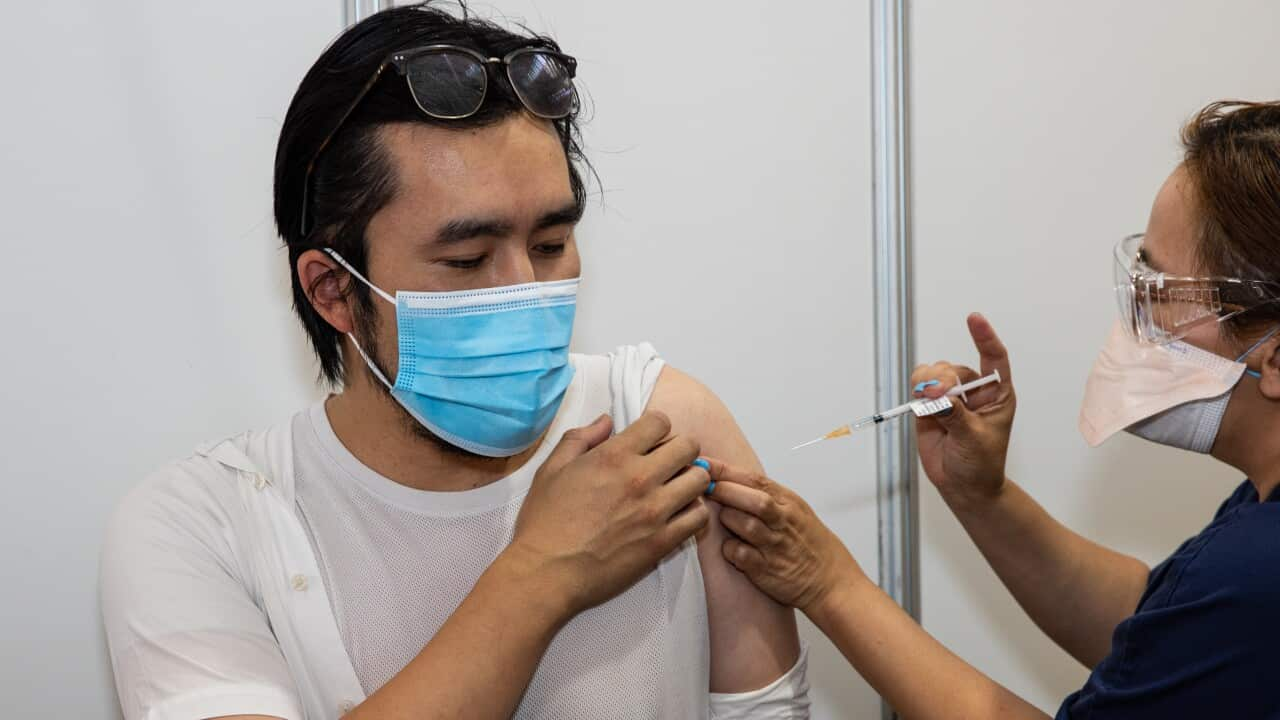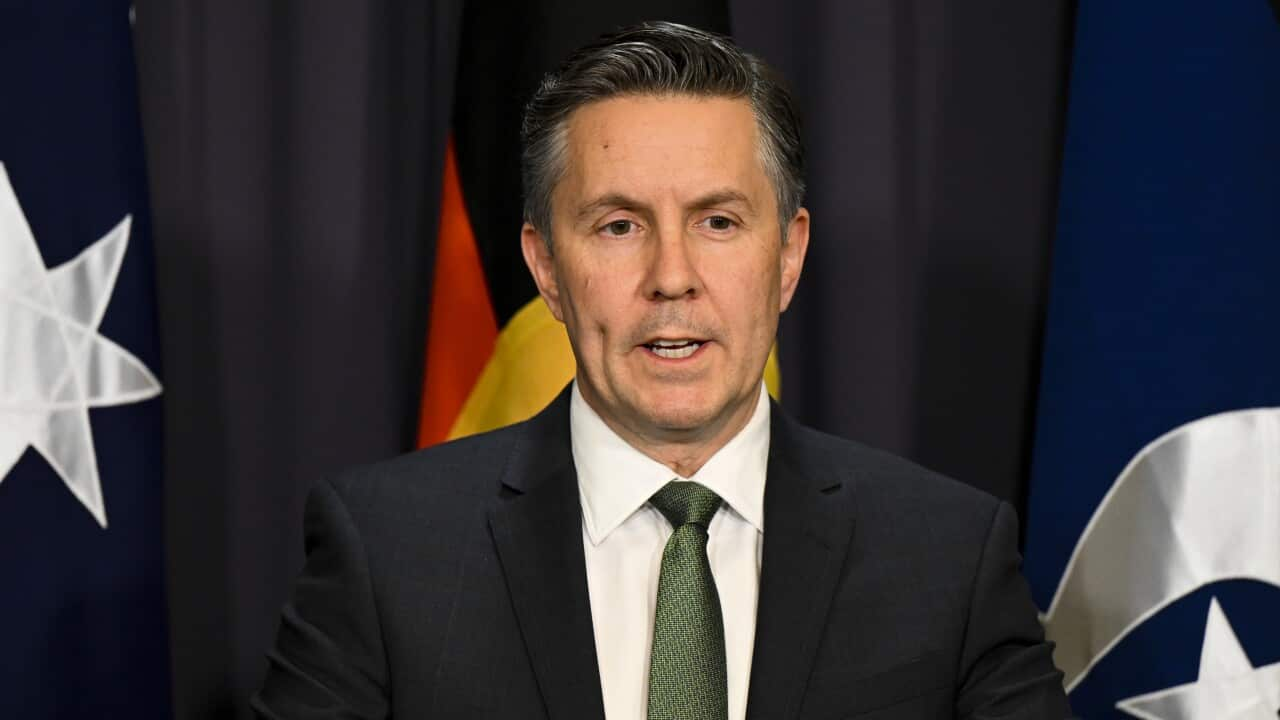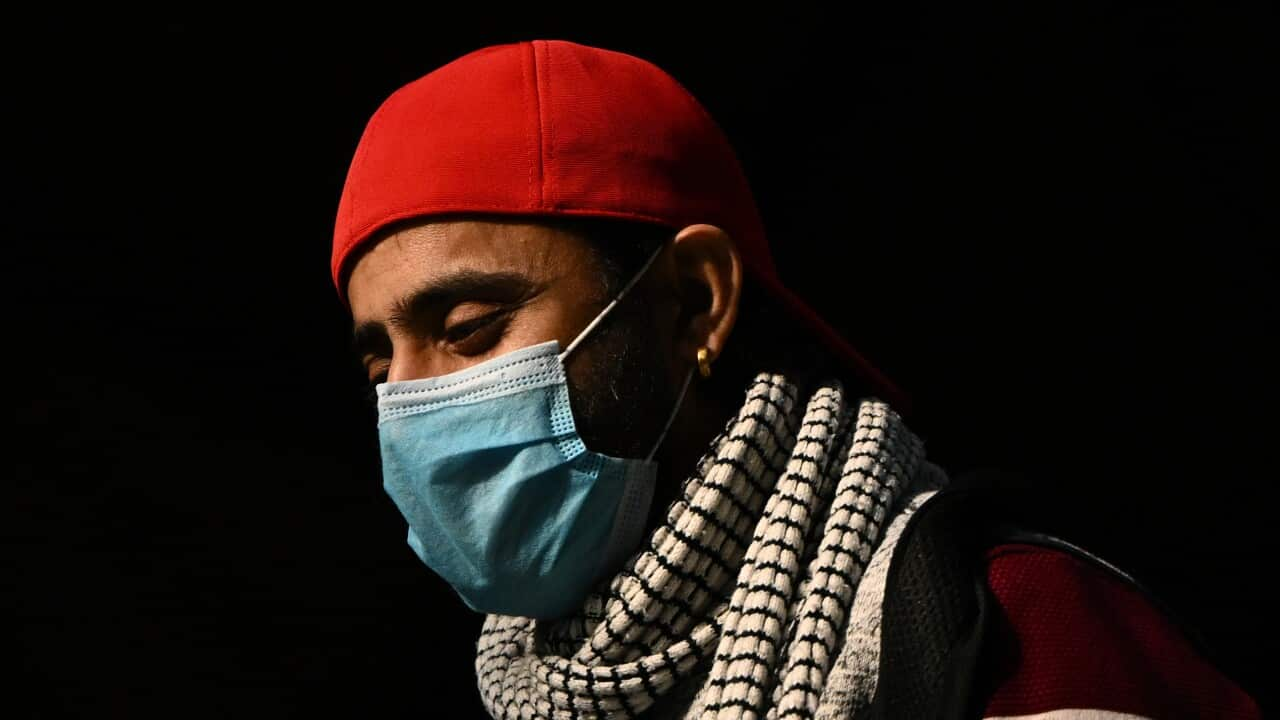Key Points
- Australians won't get access to a fifth COVID jab before Christmas.
- ATAGI has decided not to recommend a fifth dose 'at this point in time'.
- New booster recommendations may be made in early 2023 ahead of winter.
Most Australians won't get access to a fifth COVID-19 jab before Christmas, in line with expert advice, Health Minister Mark Butler said.
Mr Butler said the Australian Technical Advisory Group on Immunisation (ATAGI) had considered international evidence, local data around vaccination numbers as well as case numbers in the pandemic, and decided not to recommend a fifth dose "at this point in time".
He said new advice about further boosters would likely be provided next year ahead of winter.
"They [ATAGI] have said that they anticipate new booster recommendations being made in early 2023 in preparation for the southern hemisphere winter," he told reporters on Tuesday.
Mr Butler said ATAGI would continue to actively review the role of booster doses and evidence about their performance from around the world.
In making the decision, ATAGI also considered evidence from a recent COVID wave in Singapore, which Chief Medical Officer Professor Paul Kelly said was "short and sharp" with cases peaking and then coming down in about a month to six weeks.
Professor Kelly said Australia's COVID cases had been going up for the last few weeks but "if it ends up being similar to Singapore, and I believe it will, then it should peak soon and drop quickly".

Health Minister Mark Butler says Australians won't be able to get a fifth COVID-19 vaccine yet. Source: AAP / LUKAS COCH
A new , with Mr Butler announcing this week that a .
Who can get a fifth COVID vaccine dose?
Australians who are already up-to-date with their boosters can't get an extra jab to top up their immunity.
The only group for which a fifth dose is currently recommended are severely immunocompromised people aged 16 years or older. They can get a fifth dose three months after their fourth dose.
This is in contrast to Singapore, where the Ministry of Health has recommended the bivalent as an additional fifth booster dose for everyone over the age of 18, because it broadens protection against variants and potential future ones. Americans have access to an even more advanced version of the vaccine, which targets the BA.4 and BA.5 variants.
Why can't people get a fifth dose if they want?
Clinical epidemiologist Professor Nancy Baxter of the University of Melbourne previously told SBS News the United States had not experienced a bad BA.5 wave, like Australia had, so it could be expecting a worse outbreak as it approached winter.
Another factor in Australia's favour is that it has a highly vaccinated population, even though booster take-up has not been as good as for the first two doses.

Australians have largely embraced COVID-19 vaccines. Source: AAP
She said if people got vaccinated during a smaller wave, this would make it harder for authorities to use vaccination as an effective tool to bring down cases later if there was a larger surge, because many people would already be jabbed.
From a healthcare system perspective, Professor Baxter said vaccinating people every four months was not a sustainable strategy unless there was a clear and apparent need.
University of Newcastle Associate Professor Nathan Bartlett, who is a viral immunologist, told SBS News in October the government may be focusing on those who haven't had their full course of boosters.
"Perhaps talking about a third booster might just complicate that message a little bit ... so I think it's just keeping that messaging relatively straightforward," he said.
Why you shouldn't panic if you can't get a fifth COVID jab
Professor Baxter said the protective effect of boosters against hospitalisation and death started to wane by small percentages, starting around four months after being administered, although it still provides good protection quite a long time after vaccination.
For someone who had a third vaccine dose (or first booster) in December, January or February, it would now be around 11 months since they were boosted.
"Their protection against getting COVID has waned long ago, but their protection against hospitalisation and death, it's still holding up but it's waning a little bit," she said.
Professor Baxter said it was also unclear whether the new bivalent vaccines, such as the one made by Moderna, that also target Omicron variants, were a lot more effective than the older vaccines.
"The studies have been somewhat inconsistent, some showing that there's increased response, and some showing, not really, in real life," she said.
"It's not 100 per cent clear that it's a game-changer, certainly it doesn't make as much difference as just getting the booster of any sort."
Australians have also been urged to check with their doctors if they are eligible to receive anti-viral medication if they do contract COVID.
Professor Kelly said there was now plenty of supply of anti-virals, which could halve the rate of death for people aged over 70 years.
"[It's] incredibly important to get those treatments as quickly as possible," he said. "Within a day of being diagnosed is best, but up to five days, it would also make a difference in both your chance of severe illness, leading to hospitalisation, or indeed, of dying from COVID."
Australians have also been advised to consider wearing face masks, and for those who are not up to date with their boosters, they should get them now even if they have been infected with COVID.
"People should go and get whatever they're eligible for now," Professor Kelly said. "The infection alone will not protect you for a long time, and it will not protect you against severe disease. That in combination with a number of booster shots, will."
Would you like to share your story with SBS News? Email [email protected]













